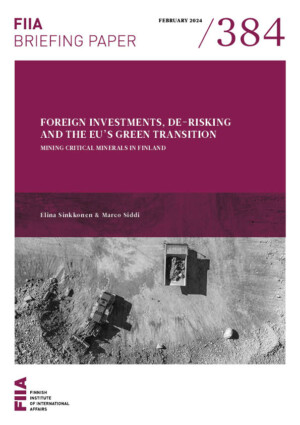The EU is highly dependent on imports of critical and strategic raw materials, both at the extraction and the processing stages. Many of the key supply chains for these materials are dominated by China. In addition, the EU is also dependent on China for many green technologies, such as battery production.
The EU’s Critical Raw Materials Act (2023) sets concrete targets for reducing dependencies in the green transition by 2030. Considering both the level of existing dependencies in critical and strategic raw materials and the fact that the Act does not provide any new funding instruments, the feasibility of reaching the set targets is questionable.
The Finnish mining sector presents an interesting case that illustrates the scarcity of domestic financing. Most metal ore mines in Finland are owned by foreign companies, and similar trends apply to the refining and recycling of materials.
If the EU wishes to mitigate the risks of becoming dependent on authoritarian countries, foreign investments in sectors relevant to the green transition should be subject to investment screening. For example, the Finnish Act on the Screening of Foreign Corporate Acquisitions does not cover greenfield investments such as investments in building battery factories.



